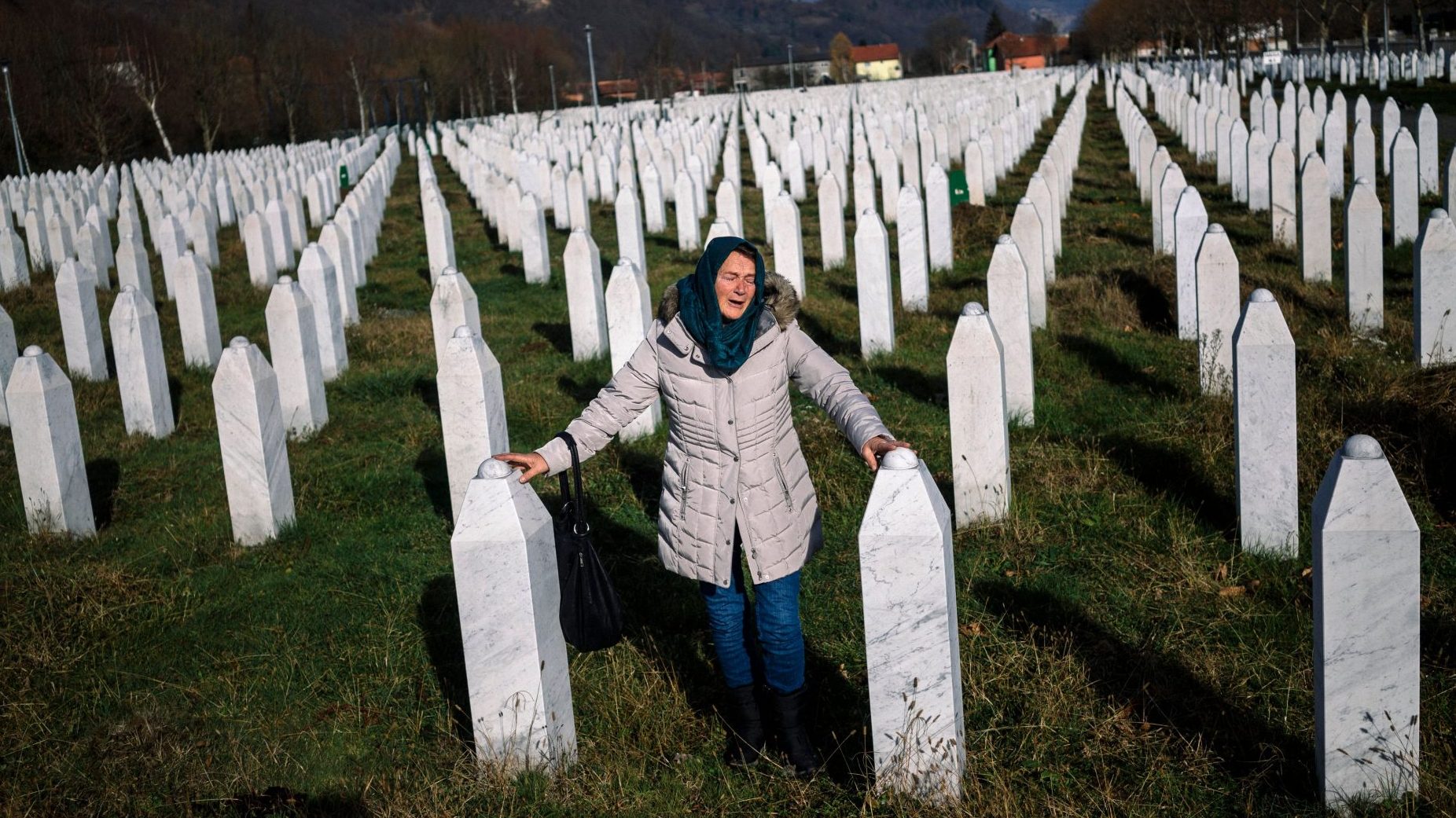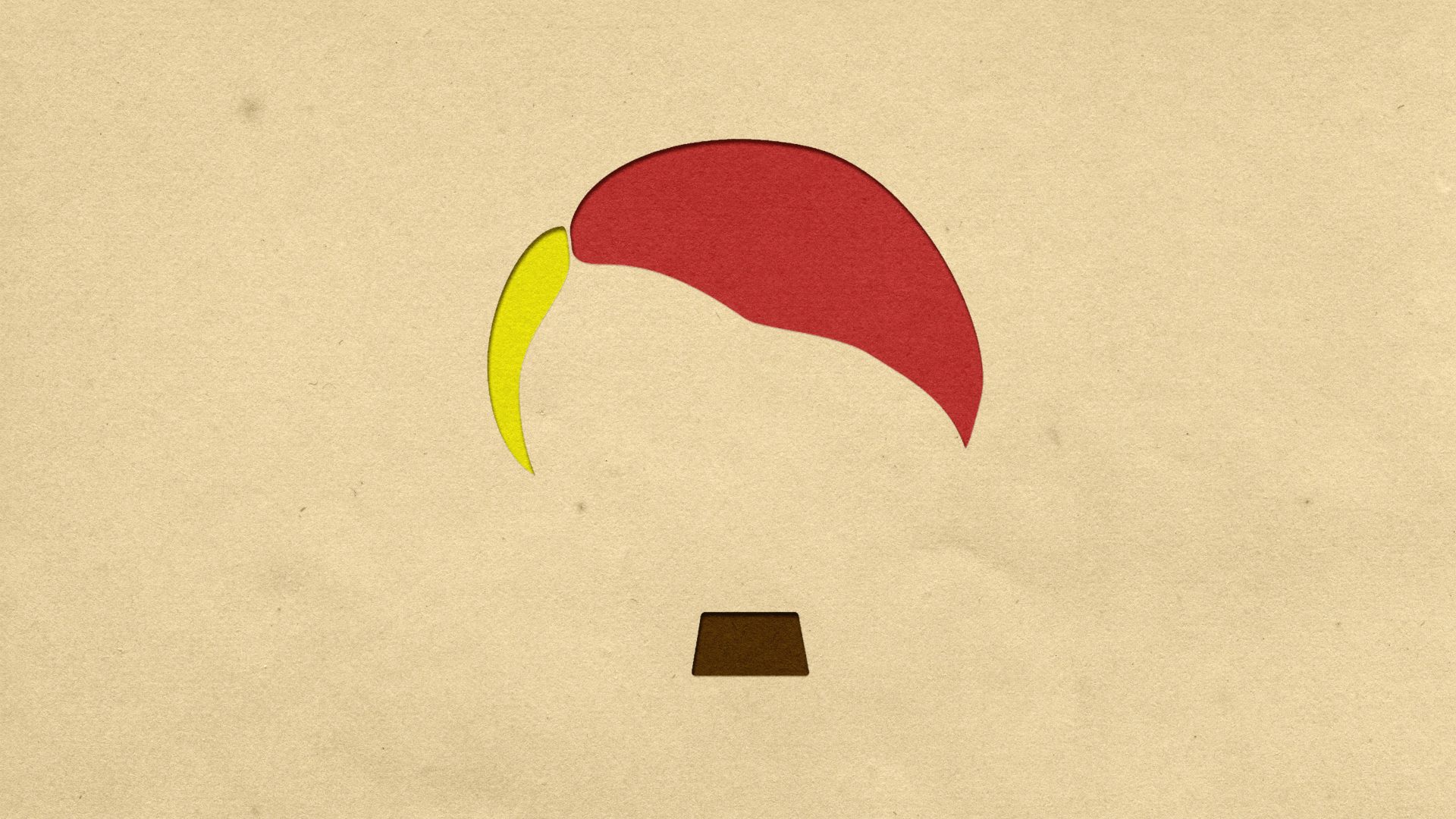It was July 1995, at the height of the Yugoslav wars, the last time Europe erupted in conflict. Amid a sultry heatwave, a desperate evacuation was taking place in the Muslim enclave of Žepa in Bosnia as Serbian forces, led by their brutal commander, Ratko Mladić, approached. Mladić, a convicted war criminal serving a life sentence, is now gravely ill in jail, his 2021 appeal for release on health grounds rejected. But, three decades after the start of the war that tore his country apart, his name is still associated with horror. Back in 1995, Mladić was known for his savagery on the battlefield, a reputation that earned him the name “the Butcher of Bosnia”.
One of the people fleeing Žepa that day in 1995 was Esma Palić. Her husband had told her to get out, but to be careful. “He told me, stay in the middle of the road,” recalls Esma. “As he walked away, he turned and shouted again – ‘in the road, OK?’”
The road that Esma, her two young daughters and many other civilians were about to take was lined with mines, so it was good advice. But it was also the last thing she ever heard him say. Shortly after that final warning, the Bosnian commander, Avdo Palić – her husband – went to his death at the hands of Mladić and his trigger-happy men, in effect sacrificing himself to ensure the safe escape of local people.
Wars are filled with brutal memories such as this, and many such stories will emerge from Ukraine, just as more war criminals – Russian this time – will have their comeuppance at The Hague. But in this period marking the 30th anniversary of the Bosnian war, tensions are rising again in the Balkans. The ethnic Serbs in Bosnia are restive, and the racist narrative that underpinned the 1990s war is gaining a new, insidious popularity. At the same time Serbia, encouraged by its ally, Russia, is putting its troops on “highest combat alert”, supposedly to protect ethnic Serbs in neighbouring Kosovo, a country that Belgrade refuses to recognise. The similarities with the early stages of the Ukraine war are worrying and unmistakable.
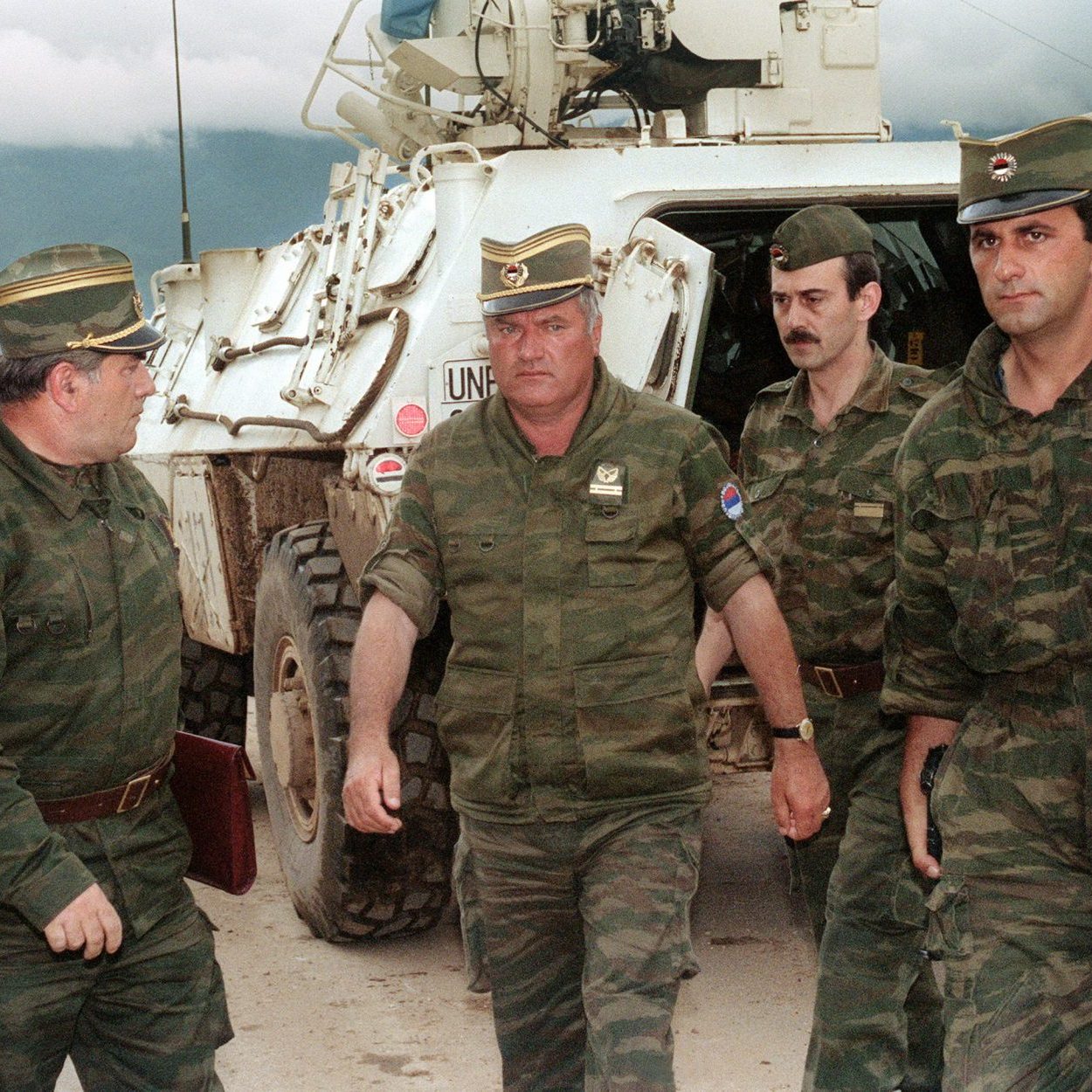
But the story of Avdo Palić shows that the moral collapse of war can also bring about its opposite. He had already saved an estimated 5,500 lives by organising Žepa’s resistance against Mladić’s soldiers, who had massacred more than 8,000 Bosnian Muslims in Srebrenica, a town only 13 miles away. Even after Mladić and his troops had captured Žepa, Palić returned in order to secure the stalled evacuation of the final group of civilians and wounded, an act that saved over 800 lives. He did so even though there was every possibility that Mladić had set a trap.
From the moment she last saw her husband, Esma’s life has been a quest first of all to find him, and then to tell the world – and their children – the story of the quiet former engineering teacher who became the heroic antithesis of Mladić in the ugly war.
“Mladić – that man… He influenced and determined my life, and also the lives of many other victims in Bosnia,” Esma tells me from Sarajevo. She believes that the more her husband’s story is told, the less effect the other man can have.
Esma and Avdo met in 1987 while university students in Sarajevo. Both held scholarships – he in engineering, she in psychology. After two years, “Avdo proposed,” Esma confides, “but I hadn’t finished my studies. I wasn’t ready. I broke it off and we went our separate ways.”
After graduating, Avdo left Sarajevo and worked as a technical director in a factory before taking up a post as engineering professor in the town of Vlasenica. In those years, Mladić was on his way to becoming a major general and commander in the 1991 Croatian war. Esma left the city in early 1992, just before Mladić began the lengthy, devastating siege of Sarajevo. At four years, it was the longest such city siege in modern warfare, with traffic, water and electricity cut off, constant shelling and sniper fire. Soon the ethnic tension that had been building in Yugoslavia through the Croatian conflict erupted across the whole country.
In March that year, she went to visit her family in Žepa for the Muslim Eid celebration. Within weeks, the war had begun, and Bosnia and Herzegovina declared independence. Vlasenica soon fell, and Avdo went to stay with his father in Krivače, a municipality of Žepa. Trapped together by war in the mountainous enclave, the couple soon rekindled their relationship.
Avdo, who had been a reservist in the Yugoslav army, became commander of the enclave. Esma wasn’t surprised. It wasn’t about being a great warrior, she tells me, but a quality about him that meant he was always asked to be in charge of things, whether a student body or an employment group: “He was very responsible, conscientious. People knew he would get the job done properly and follow it through to the end.” It was a tendency she later came to lament.
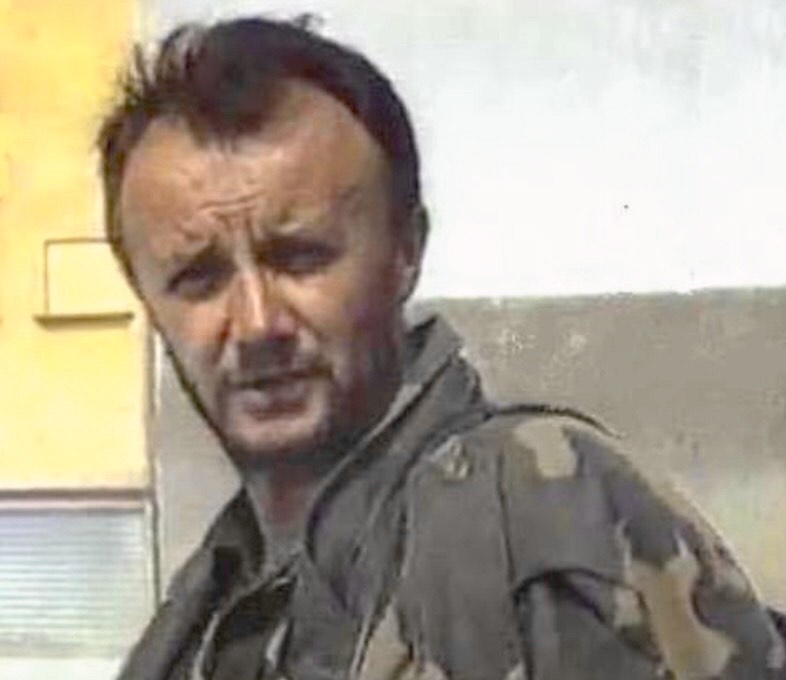
With the simmering war giving them a greater sense of urgency, they married and had two children in quick succession. Bringing up their daughters in a place of want and fear, without letting on that they were in constant danger, was a trial: “It was extremely difficult, but when the war keeps on going you just have to accept that your life must continue one way or another. So you adapt to the situation around you. There was a shortage of many things, but we tried to be happy and content with what we had.” She played games, filled bottles with multicoloured beans to make rattles and fashioned makeshift toys out of next to nothing. Images of Ukrainian mothers in the news must remind her of those days, I say. She nods fiercely. “Absolutely, absolutely, absolutely. I feel for them. It’s always the same. Wars keep happening. Nobody ever learns.”
A few months after Esma and Avdo came to Žepa, the Serbian army sent a convoy of troops to occupy the town. Avdo and his small band of men staged an ambush despite their lack of equipment, rolling boulders and logs down into the canyon. The angry Serbs instead besieged the enclave as they had done in Sarajevo – the Žepa blockade lasted for three years.
The increasingly brutal Mladić oversaw operations in Bosnia aimed at ethnically cleansing Serb areas of the other groups such as Croats and Bosniaks – Bosnian Muslims – with whom they had long lived side by side. A purveyor of insincerity, he can be seen in online videos from Srebrenica – like Žepa a Bosniak enclave in the Serbian-dominated region – as he smiles, pats children on the head and gives them chocolate while promising a passage to safety, if only they would board the evacuation buses he had provided and let the military get on with the fighting.
Guided by Dutch peacekeepers – ill-equipped, under orders not to fight, their calls for airstrikes unanswered – who tried but failed to protect them, Srebrenica’s Bosniaks were massacred, some systematically killed in “death farms”, football stadiums or fields, others hunted down in the woods or on the roads.
Thanks partly to escapees seeking refuge in the surrounding woods, those in Žepa knew Mladić would soon turn to them. They also realised they would get little or no international help. When the Ukrainian peacekeepers in Žepa said they were under-resourced and didn’t have the mandate to help, Avdo had asked them to return the weapons they were holding under the terms of Žepa’s “safe area” status.
“Srebrenica fell in two days. Avdo knew they had to fight because if they surrendered the same would happen here and we would all be dead,” Esma says. “He said ‘if we fight we will give the rest of the world time to realise what’s happening here and maybe they will come and help us’. He thought it would be an example and hope to others.”
Using simple weapons and homemade explosives, attacking from the forests and returning to battle even when injured, they held on for 13 days. Mladić resorted to his familiar tactics, with smarmy reassurances and jokey attempts to deflect fear. “The Serbian soldiers were in the mountains around Žepa, and they were shooting down on us,” Esma remembers. “Mladić shouted through a megaphone: ‘Don’t listen to crazy Avdo, he will lead you to your deaths. Listen to me and surrender’.” But after Srebrenica, nobody believed that.
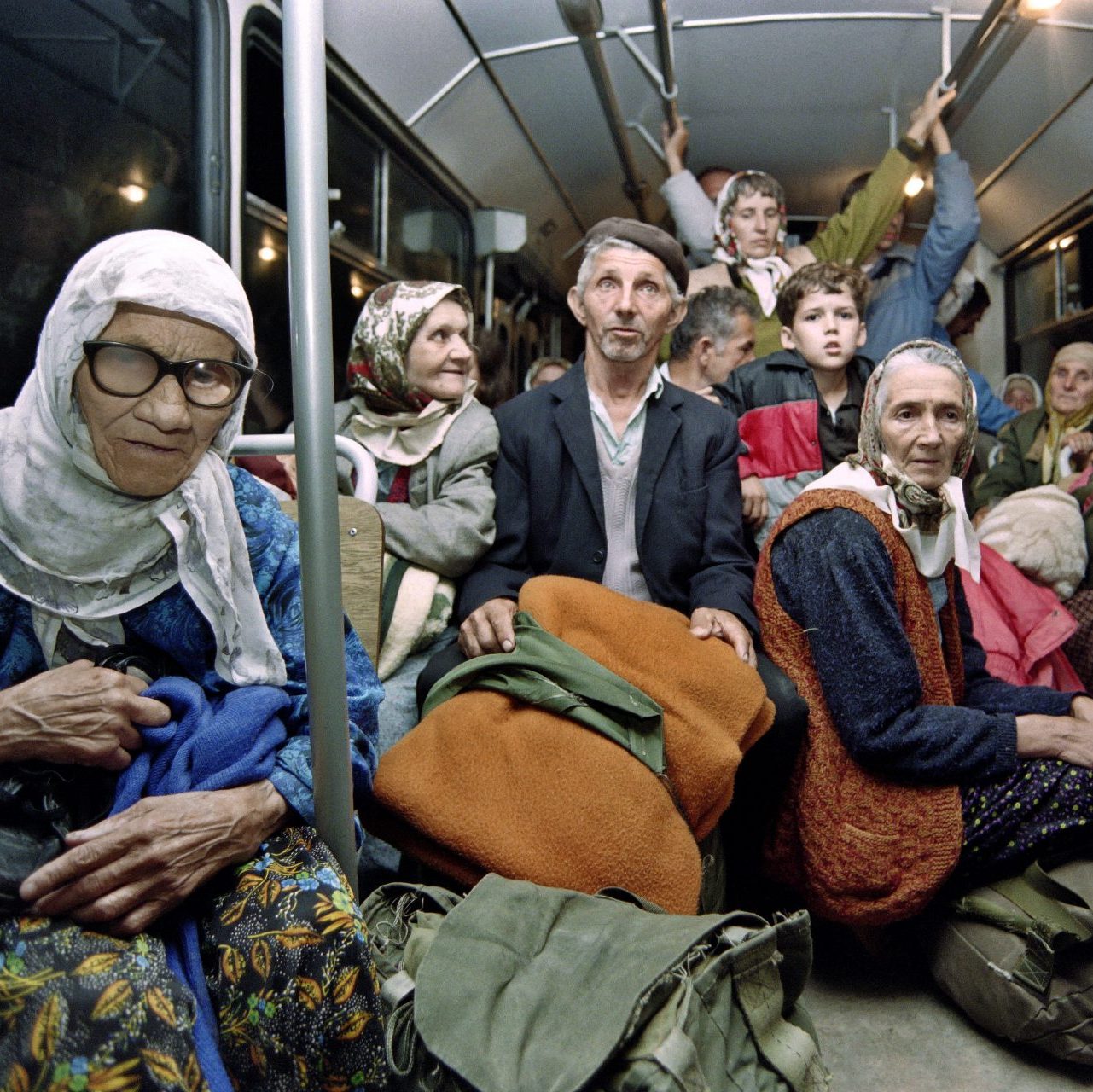
During the standoff, Edward P Joseph, a United Nations civil affairs officer in Bosnia for much of the war, and one colleague from Unprofor (UN forces in Bosnia) had been sent to Žepa to coordinate evacuation of the women, children and wounded soldiers. The fate of the rest of the men hung in the balance. Mladić summoned Joseph, his colleague and International Committee of the Red Cross officials to a high point above Žepa, as the Bosnian Serb general anticipated an easy conquest. Serb propaganda boomed across the hills of Žepa, urging surrender, but instead, the Bosniaks responded with cannon fire. Frustrated by Palić’s refusal to give up, Mladić angrily sent the international representatives away.
The delay secured by the obstinate Bosniaks under Palić bought life-saving time. When Žepa finally capitulated on July 25, Croat forces were about to begin a final, decisive assault in collaboration with their Bosniak counterparts. This eventually pulled Mladić away from Žepa, allowing the Bosniak men to escape his clutches.
“Palić did not escape. Nor did he flee, flinch or back down, even in surrender,” Joseph tells me. “A true leader, he remained in the centre of Žepa, along with the imam, Mehmed Hajric, and civil protection chief, Amir Imamović, to ensure the evacuation was as secure and dignified as possible.”
When Joseph and his colleagues returned following the fall of Žepa, he was amazed by Palić’s poise in meetings with Mladić, his top lieutenant, General Zdravko Tolimir, and other Serb officers. Always in uniform, Palić maintained his military bearing throughout the ordeal, Joseph said. In a memorable encounter at the UN compound, Palić sat alone, surrounded by Serb officers taunting him over the war. “Avdo! Avdo!” they chanted, trotting out self-serving examples of his failures. As he had done throughout, Palić remained calm. There were glimmers of respect for him among the Serb soldiers.
Shortly after the evacuation was completed, Palić was seized at gunpoint from the UN compound by Serb soldiers, as Joseph and his colleague protested. “We jumped in our UN jeep and gave chase, but it was no use,” he says. They immediately reported the seizure to Unprofor headquarters and later raised it with Mladić, in vain.
Before he went to Žepa to talk to Mladić, Avdo had told Esma: “Just let me finish this, then we can go away and start our family life properly.” Esma, who had walked away from her husband holding their two toddlers tightly in her arms, equipped with a list of names and contact details of people Avdo said could help her, did not see anything of him again until 14 years later, as his bones were dug from a mass grave close to the nearby village of Vragolovi. In the immediate aftermath, she thought he would find her. She asked everywhere – in official buildings, at barracks, looking up former Žepa soldiers, friends, neighbours, politicians – for any information about her husband. Joseph found Esma and helped her, introducing her to senior international officials and emphasising the importance of finding the highest-ranking prisoner of the war. The two remain good friends, and Joseph continues to urge officials in Bosnia-Herzegovina to fully and properly honour the memory of Colonel Avdo Palić, “a true hero of the war”.
But, given the Serbs’, and particularly Mladić’s, reputation, didn’t Esma guess he was already dead? She pauses. Whether she did or not, clearly she refused to acknowledge it, because it would have destroyed her. She says she naively thought it would have been “illogical” for the Serbs to kill him rather than use his release to whitewash some of their barbarism: “I came up with all kinds of possibilities to avoid the fact that he was dead. I would tell myself, maybe he has lost his memory and can’t find his way home…”
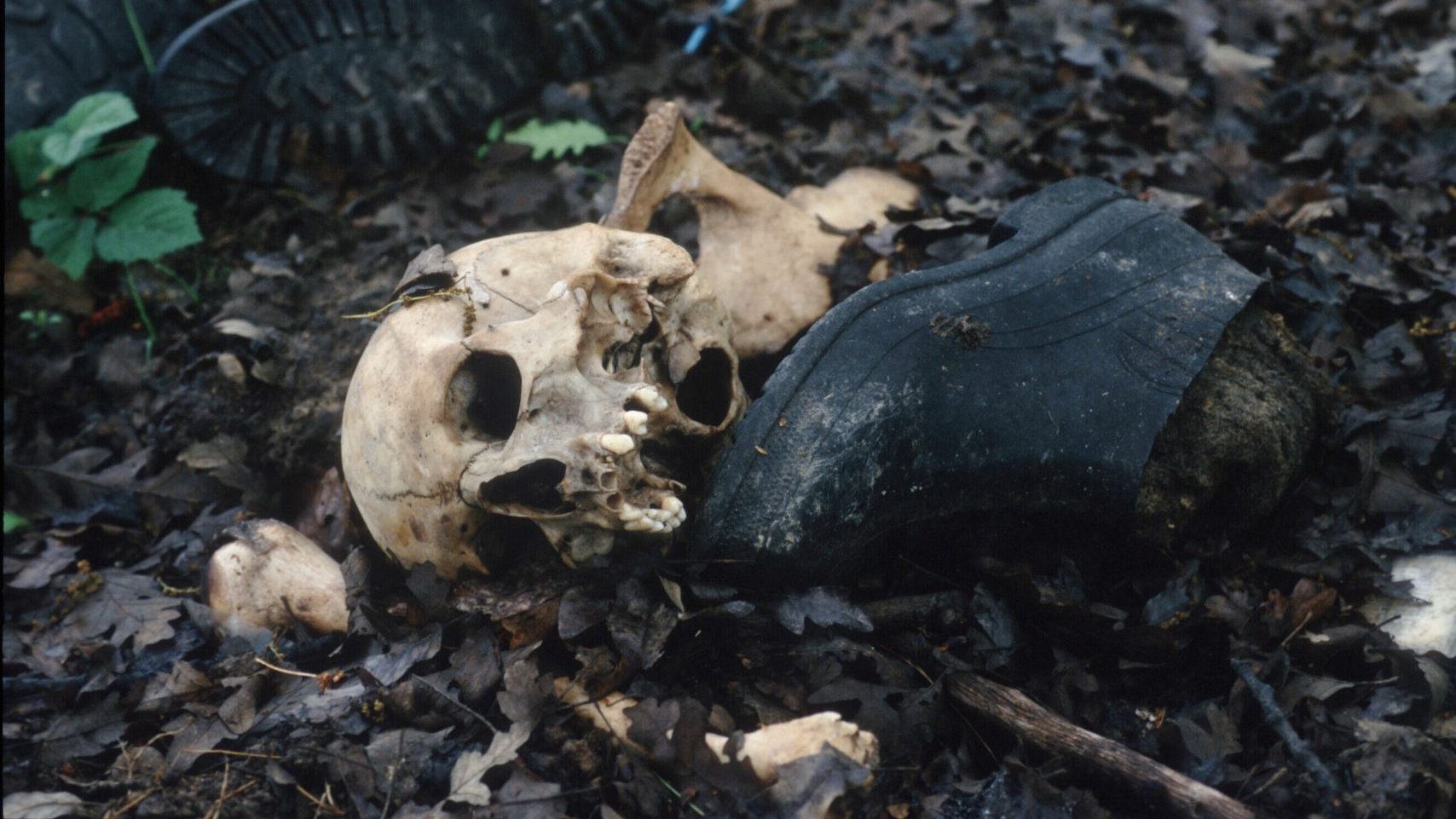
After six years requesting he be freed, she was finally ready to acknowledge his loss, instead demanding “at least give me his remains”. The search became all-consuming. She has since said she feels she neglected her children as she sought her husband, although her older daughter, Semra, a pharmacologist who studied and now lives in Amsterdam, spoke to me happily of the “loving, tight-knit family” of “the Palić girls”.
Esma says that it was much harder to look after her children – even in peace – without her husband than it had been during the war, with him. Amid her despair, the quest also served as a reason to keep going: “Each morning I would wake up thinking, what can I do today to find him?”
As well as tracking down potential witnesses and mapping out his last days, she began an active search for Avdo’s body. Documentary footage shows Esma looking on as a digger cuts slices out of a field, pulling up bones and then a skull. “That’s not my Avdo,” she says instantly, and, it turns out, correctly, her disappointment at yet another false hope tempered by the relief that she isn’t yet holding concrete proof of his death in her hands.
Mladić and other figures, such as the politician Radovan Karadžić – also since convicted of genocide – were still on the run. As she questioned potential witnesses, hiring diggers and visiting mass graves, sifting through human bones and rotting fabric again and again, Esma also testified at the Yugoslav war crimes tribunal in The Hague, where Mladić was indicted in 1995 in absentia for genocide, crimes against humanity and several war crimes.
Palić’s bones were found in 2001, but not identified until further DNA tests were done in 2009, when he was buried in the grounds of Sarajevo’s Ali Pasha’s Mosque, in front of several thousand mourners. “After the burial I could weep until I was all cried out. Then I was able to make peace with what happened and get on with my life. One of the worst things is not knowing.
“At least I have him now, I know where his grave is, I can visit him,” Esma says. As Ukrainians who have lost family will discover, “war doesn’t end for relatives of the missing until they have found the remains.”
Yet, although he was reportedly sighted many times, at an international football match, skiing and at his wartime bunker, Mladić wasn’t caught until 2011, and that was only after Serbia’s European Union prospects were threatened unless he was handed over. He was sentenced to life in 2017, which was only confirmed after appeals in 2021. Each year, still more victims of the Bosnian genocide are identified following the efforts of those like Esma who won’t give up.
Even after the funeral, Esma didn’t stop seeking the truth. Along the way, she told me that documents were found showing plans for a Srebrenica-like genocide in Žepa. But her mission to trace Avdo’s last moments has hit a snag. It’s now known that, after he was seized in Žepa on July 27, 1995, he was held alongside two Bosniak prisoners from Srebrenica in a prison in Bijeljina – an eastern Bosnian town and the site of a 1991 Bosniak massacre by Serb paramilitaries. The Bosnian Serb administration has concluded that on September 5, 1995 a Bosnian Serb military officer took him from there, probably to his death.
But who shot him? Hamstrung by recent ill health and the passage of years, Esma may never know. Even so, she has succeeded in honouring his memory and building a story for the daughters who were only a few months old when they lost their father.
Now working as a psychologist at Bosnia-Herzegovina’s ministry of labour and social policy, Esma is sanguine. She continues to talk about Avdo, despite the sad memories this evokes, because “people must know these stories”. His fate has dominated so much of her life that I’m shocked to realise they were married for barely two years. “I often wish he hadn’t been so responsible, that he had saved himself,” she admits. “But I’ve realised that if he had, he wouldn’t have been able to live with himself. That was the person I fell in love with. That was who he was, so this is how things had to be.”
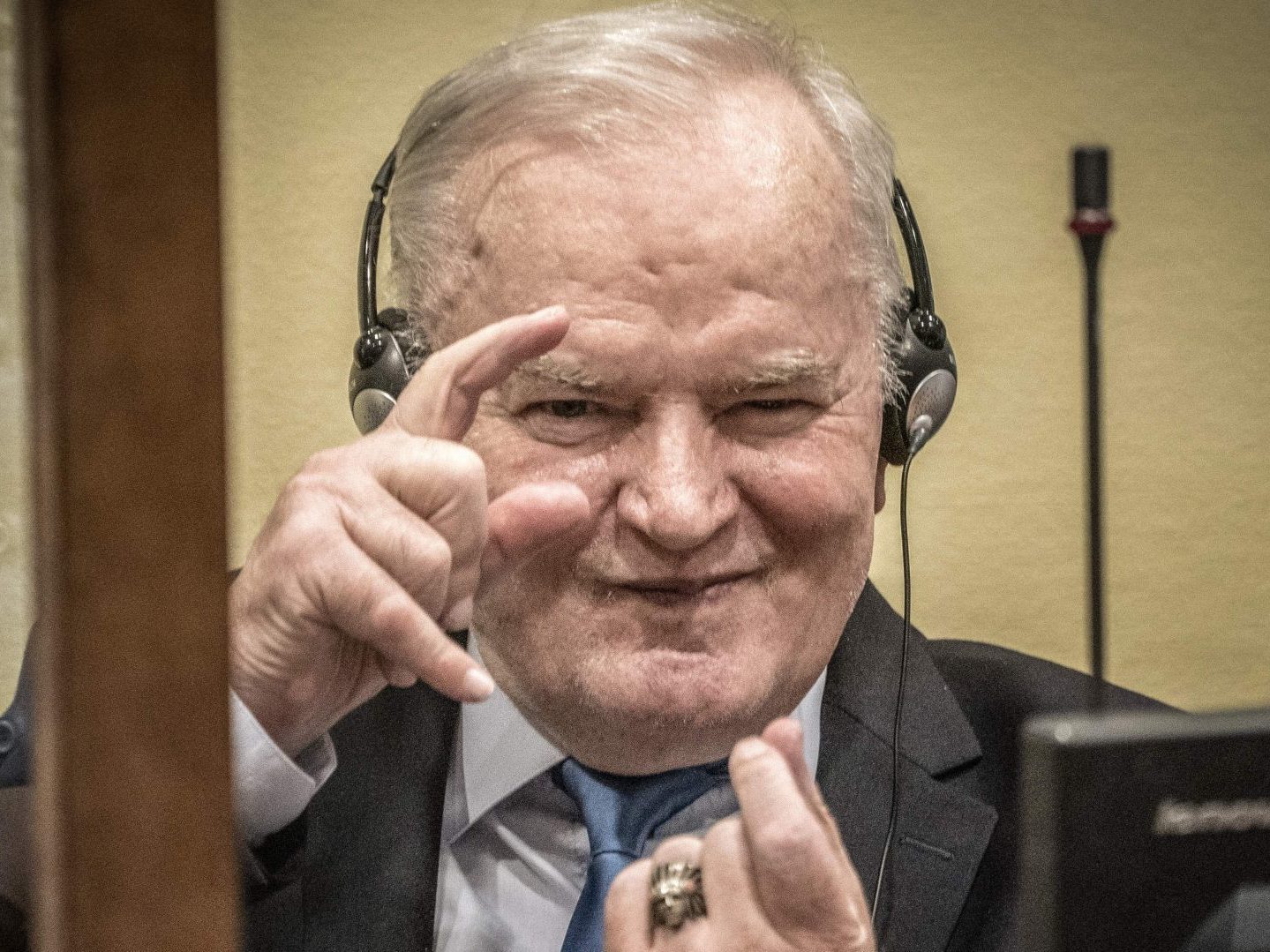
As we talk, Ukraine is suffering similar unspeakable horrors following Russia’s invasion, and Serbian nationalism stirs again in the Balkans. Is she worried that war could start all over again, three decades after the first one began? “To be honest, there never really was peace anyway,” she says. But she’s also sceptical that the same inter-ethnic demons can be invoked again so easily.
“That war was never really just about ethnic hatred – it was stirred up for other reasons.”
Today, Mladić is ailing. He was taken to hospital in September because of “general weakness, lung inflammation, and heart complaints”, according to his son, Darko. Many thought he would die. He’s now back in prison, but in poor shape. Despite his pariah status in the western world, his name and those of other perpetrators of genocide in Bosnia are undergoing rehabilitation among Serb nationalists.
Yet what I hadn’t expected was how little Esma had to say during our interview about the man who forced her to live most of her life through the prism of his deeds.
“I don’t think of Mladić and I don’t wish him anything. I don’t care whether he is dead or alive or doing well or not,” she says. “The moment he was brought to justice, and the moment the international criminal court for Yugoslavia sentenced him to life in prison, finding him guilty for many, but not all, crimes he committed – that was when I found closure. No punishment in this world can be enough for what he did – the only real, true punishment can come from God. But for me, all that’s now behind me.”
Perhaps, in a way, this is the worst thing to hear for the genocidal, sadistic egomaniac who darkened so many lives and apparently enjoyed his role as an international villain. To slip into a state of obscurity and nothingness so that even the victims neither know nor care whether their former tormentor is alive or dead… there are many in Ukraine who are hoping the day will come when they can feel the same.


